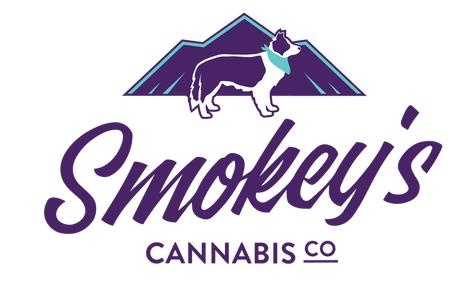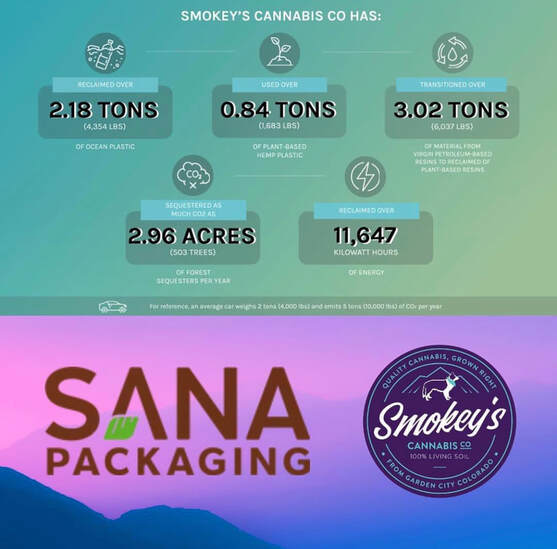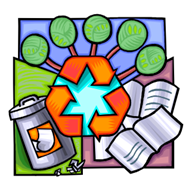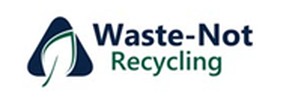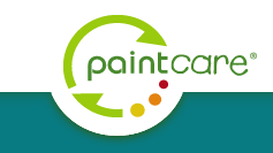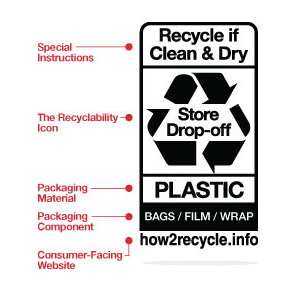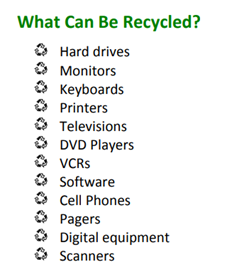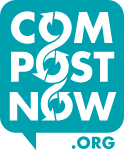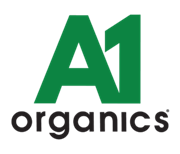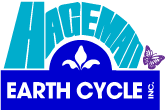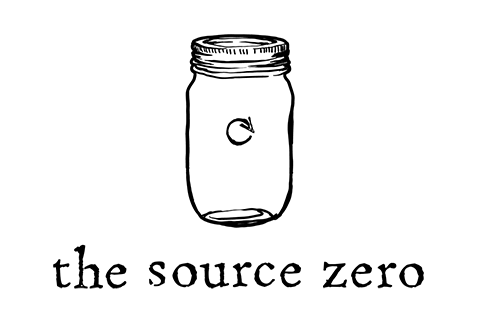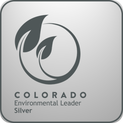Sustainability Resources
Sustainability is important to Smokey's, in the cannabis industry, and our everyday lives. Below you can find information on Smokey's Sustainability Practices, as well as resources in Colorado to help you join us in being more sustainable.
Smokey's is a part of the Colorado Environmental Leadership Program. As a part of this program, we have made several changes to our procedures to recycle and reuse as much as possible. Smokey's has implemented a robust Integrated Pest Management (IPM) program. The IPM includes refraining from the use of salt-based fertilizers, implementing the use of organic mineral and nutrient balancing, and fostering a balanced microbial community within the soil food web. The IPM program, which also includes preventative measures like the use of beneficial insects, allows for the reuse of the soil that the cannabis plants are grown in. In addition to soil reuse, Smokey's uses trimming waste (plant matter) as mulch, which is put back into the soil or used as raw material for anaerobic digestion. The end product is used to feed the worm farm that Smokey's has created. The casts from the worms are used to amend the soil, thereby creating a closed-loop system with no waste generated.
Waste Minimization & Diversion
Smokey's is a part of the Colorado Environmental Leadership Program. As a part of this program, we have made several changes to our procedures to recycle and reuse as much as possible. Smokey's has implemented a robust Integrated Pest Management (IPM) program. The IPM includes refraining from the use of salt-based fertilizers, implementing the use of organic mineral and nutrient balancing, and fostering a balanced microbial community within the soil food web. The IPM program, which also includes preventative measures like the use of beneficial insects, allows for the reuse of the soil that the cannabis plants are grown in. In addition to soil reuse, Smokey's uses trimming waste (plant matter) as mulch, which is put back into the soil or used as raw material for anaerobic digestion. The end product is used to feed the worm farm that Smokey's has created. The casts from the worms are used to amend the soil, thereby creating a closed-loop system with no waste generated.
Waste Minimization & Diversion
- Smokey's has adopted a 90% waste reduction goal. This goal was established in early 2018. To date, Smokey's has made progress and increased the quantity of materials recycled. From March to December of 2018, Smokey's recycled 50.41% of their waste (of the 8,478.75 pounds of waste material, 4,273.78 pounds was recycled). In 2019, the recycled material rate increased to 59.79% (11,164.80 pounds of waste material with 6,675.03 recycled).
- Smokey's composts most of the paper products they use. This is mostly paper towels. The paper products are composted on-site and then used for landscaping purposes at Smokey's facilities.
- All outbound packaging being sent to Smokey's stores/dispensaries is being done in plastic totes that are reused. This practice eliminates waste from packaging being used to transport products and has eliminated the use of approximately 120 bags/month in the transportation of flower alone.
- a total of 161,340 pounds (80.67 tons) of soil diverted from landfill disposal annually.
- Smokey's estimates that approximately 64,925 gallons of water are saved each year due to decreased need for reverse osmosis water and elimination of the need to "flush" the plants during the last week of flower.
- Smokey's has made process changes to sanitation practices that eliminated the routine use of kraft paper for each tabletop in the production areas. Tabletops are stainless steel and are cleaned using a hydrogen peroxide solution with biodegradable paper towels. This process change eliminated the need for kraft paper, thereby eliminating 950 pounds of kraft paper that were being purchased on an annual basis.
LOCAL RESIDENTIAL RECYCLING
COMMERCIAL RECYCLING
|
Green Manufacturing
Plastic Pellets and Regrind Plastic Tolling Services Animal Bedding Baling Twine |
PAINT RECYCLING
- Interior and exterior architectural paints: latex, acrylic, water-based, alkyd, oil-based, enamel (including textured coatings)
- Deck coatings, floor paints (including elastomeric)
- Primers, sealers, undercoaters
- Stains
- Shellacs, lacquers, varnishes, urethanes (single component)
- Waterproofing concrete/masonry/wood sealers and repellents (not tar or bitumen-based)
- Metal coatings, rust preventatives
- Field and lawn paints
PLASTIC RECYCLING
ELECTRONIC RECYCLING
|
|
